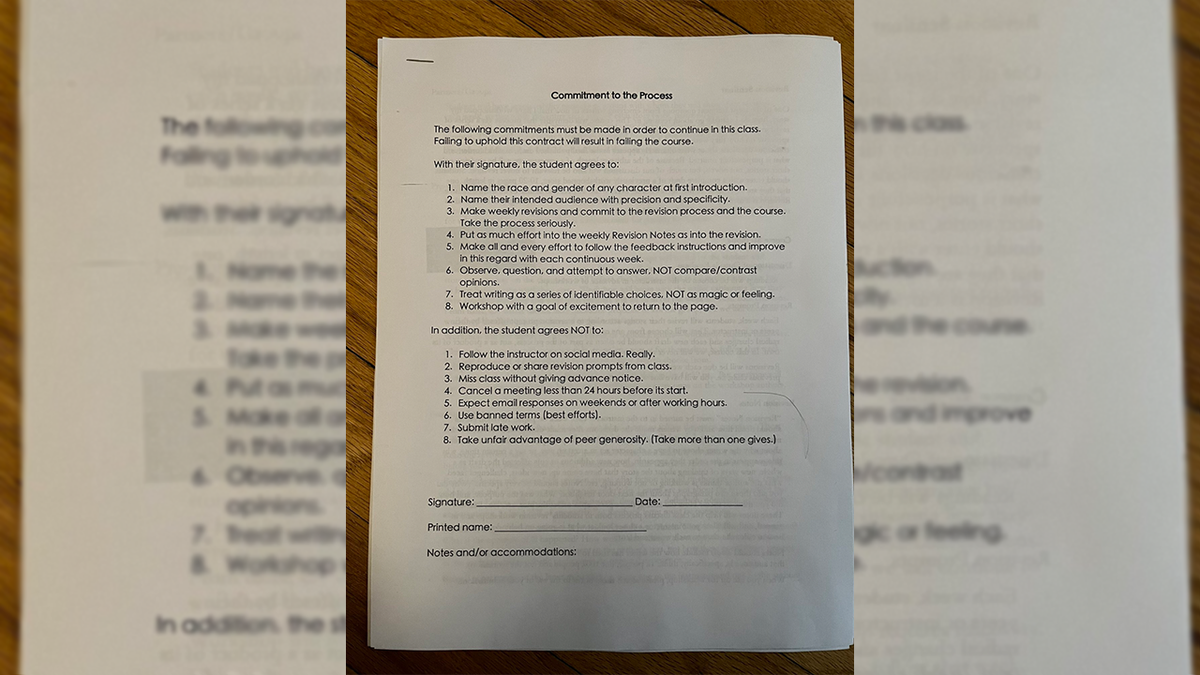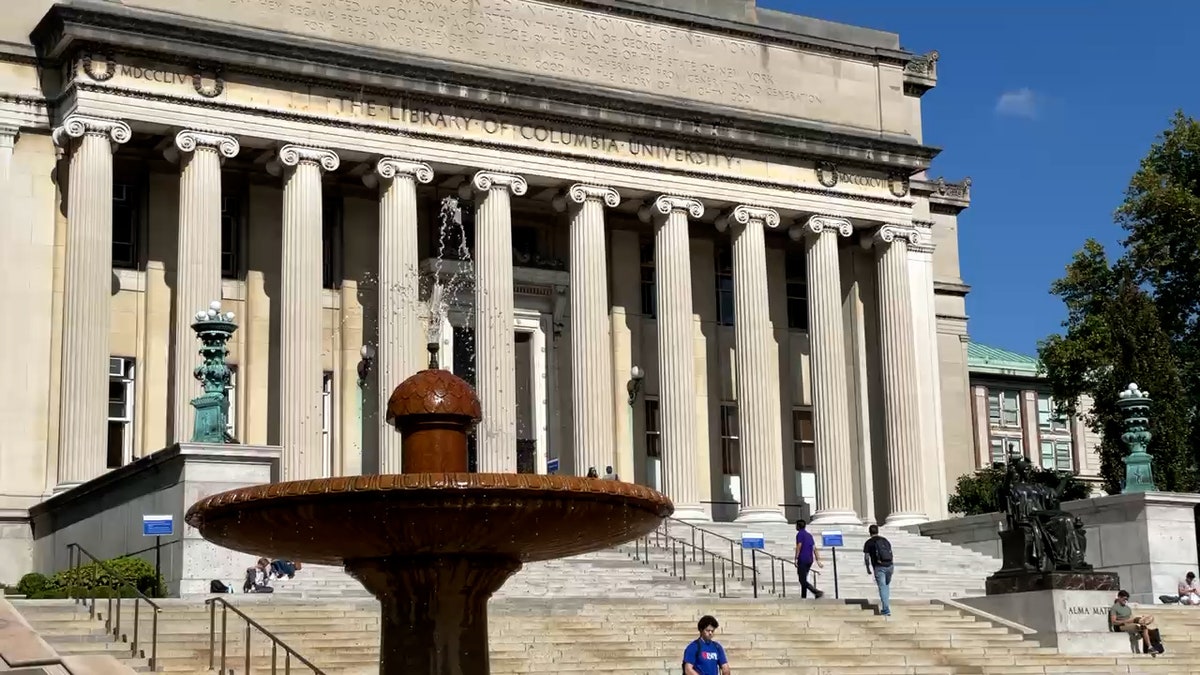Columbia students react to their college being ranked worst for free speech on campus
Students at Columbia University had mixed reactions to their college ranking last for campus free speech in a study surveying 45,000 students from over 200 colleges.
A Columbia University professor has walked back many of the provisions found in a document he asked students to sign. The initial form included a list of demands, including a requirement that signees list the race and gender of any character introduced in their creative writing class or receive a failing grade.
Matthew Salesses, an author and assistant professor of writing at Columbia University's School of the Arts, allegedly created the form as a "commitment to the process" and posted a picture of the paper to his Twitter account.
"Made my grad students sign this today because if I'm going to commit to them, they need to commit to themselves," he reportedly said in a since-deleted tweet on Tuesday.
The tweet also included a picture of the form, which began by notifying students that failure to uphold the contract would result in a failing grade for the course.

A form allegedly given to students at the Columbia University School of Arts by Associate Professor Matthew Salesses. (Bradley Babendir)
The document first told students they agreed to "name the race and gender of any character at first introduction."
It also included seven additional binding commitments, such as naming their intended audience and treating the writing process as a series of "identifiable choices," not "magic" or "feeling."
"The Commitment to the Process" form also included of a list of eight other things students agree not to do. The paper had a requirement not to follow instructor Salesses on social media, miss class without advance notice or use "banned terms."
Fox News Digital reached out to the Columbia University School of the Arts and received a letter that Salesses shared with his class after pushback from students.
In the letter, Salesses admitted that the document did not come across the way he had wished and acknowledged it may have been "difficult to process" at the time. He said he would reserve time at the beginning of the next class to discuss the form and "make it a more collaborative process."

Matthew Salesses was appointed as an assistant professor of writing at Columbia University School of the Arts in May 2022. (Matthew Salesses/Twitter)
"I hoped to stress commitment rather than any kind of punishment — for example, following me on social media would of course not result in failing the course. Also, as we talked about in class with regard to best efforts, 'banned' terms should be taken to mean "AVOID" these terms in your feedback on others' stories," the letter continued.
Salesses also expressed interest in talking about additional ways race and gender are acknowledged in fiction within the context of American history, with White as the "unspoken default."
"All of this is useful for us as tools to discuss your fiction in the context of workshopping a piece in the process of revision. As with any assignment, these are guidelines for our class only, to be taken with you afterward if you want or not," he added.
Salesses also indicated some amount of leniency, and said the class's first workshop would be pushed back to make time for students to model different ways to cut up stories in the next class.
He finished by stating that he would be in touch with students to provide more details after he had read their story drafts.

Columbia University was ranked last for free speech on campus in a new survey by the Foundation for Individual Rights and Expression. (Fox News)
The teacher has now made his account private following criticism of his post.
The document was first highlighted by Bradley Babendir, who appears to be a Master of Fine Arts (MFA) student at the university.
COLLEGE FRESHMAN ORIENTATION MATERIALS EMPHASIZE DEI OVER FREE SPEECH, REPORT REVEALS
He said on Twitter that he was contacting the administrative office and letting them know his lawyer had advised him to drop out of the program due to "overly strict contractual obligations."
According to Columbia's website, Salesses is the author of seven books, including the national bestseller "Craft in the Real World," released in 2021.
He earned a Ph.D. in Literature and Creative Writing from the University of Houston and an MFA in Fiction from Emerson College.
In 2015, Salesses was named one of 32 essential Asian American writers by BuzzFeed and has previously written on adoption, race and grief for a variety of outlets, including NPR, The Guardian and The New York Times.











































